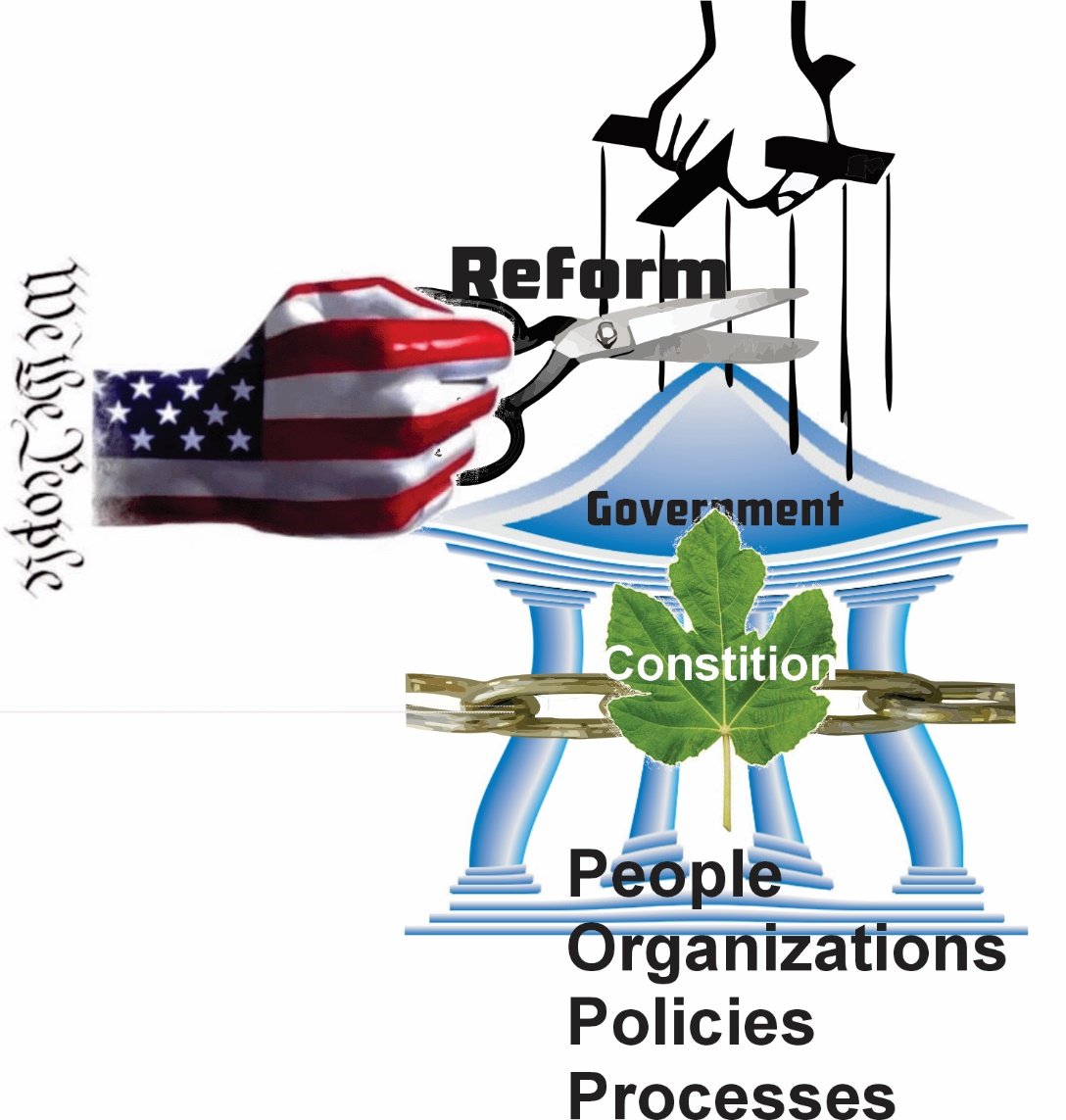
Real Reform, Part 1 Introduction
In A New Contract With America, I included a bullet point about qualifications for congressional committee and subcommittee chairs:
“Enact congressional policies to require minimum qualifications for committee and subcommittee chairperson positions. These qualifications will be like qualifications required for similar positions in the private sector or the executive branch. They will include education and experience outside of Congress.”
There are many more concerns and ideas put forth in the article. Here, we will flow forward on congress and the bureaucracy. These two are central to any meaningful reform and the restoration of power to the people. Real leadership and the ability to address the nation’s issues and problems do not come just from time served. Sometimes, 30 years of “experience” is just one year repeated 30 times, or one month repeated 360 times. We get concerns from congressional representatives like the Georgia representative Hank Johnson, who was afraid Guam may tip over if we sent new troops there: https://youtu.be/sVYBYEXl-_U. We also have at least two senators that are seriously cognitively impaired and a president that appears to be also cognitively impaired. We had two sitting Supreme Court justices that appeared to be cognitively impaired during their final years and previous cases of cognitively impaired members of Congress hold on to their seats.
This example is one of cognitive issues. But there are other, more extreme examples ranging from tax evasion/fraud, to insider trading, to potentially compromising national security. Some members of congress may not get security clearances if they applied for them as part of a normal job. Some of the infamous “squad” are an example.
The bureaucracy is also an issue. I’ve covered the bureaucracy extensively. See the list of blogs below. Many papers and analyzes show that the bureaucracy seeks to stay in place, enhance and execute power. In this sense, they are not much different from politicians. The big difference is they are harder to remove. Since the Wilsonian reforms, the bureaucracy—both the executive departments and the congressional staffers—has grown into an unelected, nearly unaccountable fourth branch of government.
While there are at least some standards to hire into the bureaucracy, the politicians have three: be alive, be of a certain age, and reside in your jurisdiction. The last seems to be less well observed since they elected Hillary Clinton to the Senate in New York, a state in which she did not live until the election.
Even the qualifications for the bureaucracy are falling and sometimes compromised. For example, in 2010, when I was starting a new directorate in a 4 star headquarters, the Civilian Personnel Office gave me a list of candidates for each civilian position. If I selected a woman or a minority from the list, I did not need to do anything else. However, if I selected a white male, I had to justify the section three ways to China.
In this era of diversity, inclusion, and equity (DIE), the standards are dropping, being ignored, and some are disappearing. The same goes for efforts to remove a bureaucrat. While not impossible, removal is difficult and with “protected classes” under DIE, perhaps nearly impossible.
We have, I suspect, a growing talent deficiency in both the political class and the bureaucracy.
Chess Harris, a friend of mine and a retired colonel and VP from several companies, sent me this note in response to a post on Deterrence:
“Today’s Politicians are not even generalists in the art and science of strategic leadership.
They are not even partial experts in what has made America great and the founding principles that others in the world seek and strive to achieve.
Today’s politician must surround themselves with an army of staffers to do what good leaders do themselves. Add the security of plausible deniability to “bad data” and the political career becomes an attractive career for the good talker…the sales agent…not the professional the strives to American better…not for their personal benefit.”
He puts his finger on a core problem. With declining standards and a growing government, the government must turn to great numbers, hoping quantity makes up for quality. A large part of this increase is contractors that do most of the actual work on government programs. With the government willing to raise the debt limit every year, there seems to be no end to this appetite for growth.
We the people need to re-assert ourselves and take control of our government. Somewhere along the way, we lost our way. Gordon Wood, in The Radicalism of the American Revolution, posits we lost our way early on and that by the1820s, the remaining founding fathers were disillusioned with our path. We need to get engaged, involved, and ensure our politicians and bureaucrats understand they work for us and not the other way around.
Follow-on pieces will discuss how We the People may engage in real reform.
Bureaucracy
- Creating the Monster: The American Bureaucracy
- The Rise of American Bureaucracy
- The Bureaucratization of the Military, Part 1: Huntington and the Balance of Forces
- The Bureaucratization of the Military, Part 2: The Nutcracker
- The Bureaucratization of the Military, Part 3: Corporateness and Bureaucracy
- Regulatory Capture and other Bureaucratic Problems
- Defending the Republic, Part 1: Introduction
- Defending the Republic: Scenario 1 Regulatory Capture
- Defending the Republic: Scenario 2 Policy Domination
- Ethics, Morality, and Virtue: Relative vs. Absolute Meaning
- The Looming NCO Crisis, Part 3: Military Culture
- Part 4: The Spanish-American War, the American Empire, and Progressism
- Critical Thinking and Policy: The Wars on Drugs and Poverty
- Part 4: Policy Development
- Government has a Monopoly on Coercive Power
- Corporatism, Part 1: Overview
- Corporatism, Part 2: The Web of Influence and Power
- Part 1: Overview of the Inflection Points
- Part 2: Judicial Review
- Part 6: WWII





